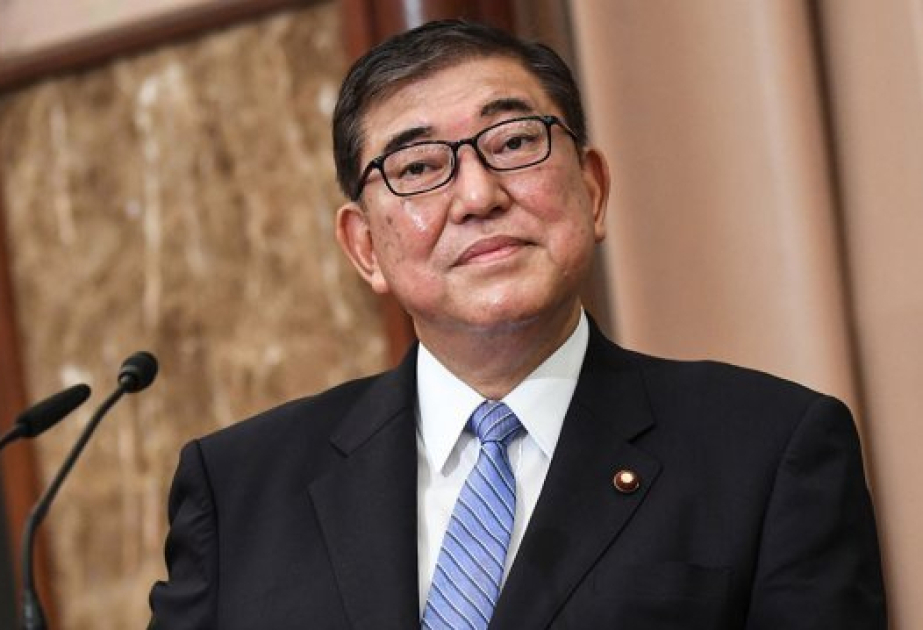Shigeru Ishiba was formally reelected as Japan's prime minister on Monday after a rare runoff vote in parliament that his ruling coalition no longer controls, setting the stage for a minority government that may push him to yield more to an emboldened opposition bloc, according to Kyodo News.
The first runoff vote in three decades to select a new prime minister saw Ishiba, who heads the Liberal Democratic Party, defeat his rival Yoshihiko Noda, leader of the main opposition party, the Constitutional Democratic Party of Japan, at the opening of a four-day parliamentary session.
During the initial round of voting in the 465-member House of Representatives, none of the candidates reached the majority threshold of 233 votes required to be elected prime minister.
In the runoff, Ishiba received 221 votes, surpassing Noda's 160, and was declared the winner, with 84 deemed invalid.
The 67-year-old LDP chief also won reelection as premier in the House of Councillors, controlled by the LDP and its junior coalition partner, the Komeito party.
Ishiba, who took office only about a month ago, has formed a new Cabinet, retaining most members except for those who lost their seats in the Oct. 27 election that underscored the extent of voter discontent with the LDP's slush funds scandal.
The launch of a minority government means the ruling coalition needs to heed more to demands from the opposition bloc that has emerged stronger in the nationwide election.
In a stark reminder of its weakening grip on parliament, an opposition member will chair the powerful budget committee of the lower house for the first time in three decades. Diet deliberations may require more time and concessions from the ruling bloc.
The CDPJ has an increased presence in the lower chamber, and the same goes for the opposition Democratic Party for the People, which has been courted by both sides of the aisle, with its seats quadrupling from before the election.
A layer of uncertainty loomed over the DPP and the outcome of the vote at the last minute after a magazine report exposed its leader Yuichiro Tamaki's extramarital affair, though his party members agreed that he should stay on.
The ruling coalition has signaled its willingness to work with the DPP and coordinate their policies, a critical step toward ensuring a stable government.
The smaller but influential DPP has become a target of courting by both the ruling bloc and the opposition CDPJ, as they appear warming to the DPP's idea of raising the 1.03 million yen ($6,700) income ceiling for tax payments, thereby boosting people's incomes.
"I will take a sincere approach to all parties," Ishiba told reporters after talking separately with Tamaki and Noda ahead of the parliamentary vote.
"The important point is to make sure that Japan is a peaceful nation and people's livelihoods improve. We are on the same page on this with the DPP and the CDP”. The opposition camp is expected to ramp up pressure on Ishiba to push for drastic political reforms, as the LDP's defeat in the election was partly attributed to its failure to restore voter trust following the ruling party's inappropriate handling of political funds.
The CDPJ and the DPP are calling for a legal revision to make the flow of political funds more transparent and for the establishment of a third-party panel to impose checks.
More Diet panels are led by opposition members than before the lower house election, raising the bar for Ishiba in seeking parliamentary approval.
The government plans to compile a package of economic measures intended to mitigate the negative fallout of rising prices by providing cash handouts to low-income earners and lowering energy prices through subsidies.
A supplementary budget for the current fiscal year to next March will be needed to finance the package.
Amid inflation, lackluster consumption and growing security threats from China, North Korea and Russia, Ishiba appeared inclined to prioritize stability and continuity in his Cabinet lineup.
Former senior vice foreign minister Keisuke Suzuki was named the country's new justice minister, and Taku Eto will again serve as farm minister. Hiromasa Nakano, a Komeito lawmaker, took the post of land minister in place of Tetsuo Saito, who became the party's chief.






















